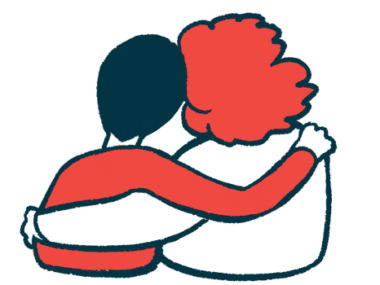Ten Steps Forward, Eight Steps Back
Written by |

I triumphantly pressed enter and marveled at my epic post on social media. There were no hospital visits, no rushes to the emergency room, and no urgent phone calls to after-hour physicians’ lines. Our second-born, affectionally known as Ladybug, had gone three solid weeks without any medical incidents. What better way to celebrate than to brag to friends (and some strangers) on the internet?
By the time she got in the car after school, I’d met her with a high-five. We sang loudly to the radio as I sped down the freeway with glee. It was clear that the Haegarda was working, and I hadn’t had to give a Berinert infusion in weeks. Finally, this girl’s hereditary angioedema was under control! I should write a book, or give a talk, or shout from the rooftops that we were triumphant!
Later that same day, she started complaining about her stomach at dinner. Until that point, I was still very much in the dark about how gastrointestinal issues related to HAE and how early warning signs of flares present themselves. By the following morning, she was suffering from a facial swell. Unfortunately, I hadn’t ordered a refill of her emergency medicine from the specialty pharmacy (primarily because of my ignorance and slight arrogance), which meant I couldn’t administer her infusion.
In less than 24 hours, I had gone from celebrating her excellent health to a four-day stay in the hospital. But it was OK, I thought. This was probably one of those breakthrough flares that I had heard so much about.
But she barely made it through the following week, and by the end of that month, we had spent almost 20 days in the hospital with, at most, 48 hours between each stay.
My previous celebration post on social media seemed to taunt me. There had been over 100 comments and positive reactions congratulating us, but here we were back at square one.
In my head, HAE was supposed to follow the standard pattern: she gets sick, gets medicine, and gets better. That’s what happened with her allergies and Xolair (omalizumab) injections; why couldn’t we match the same results?
“That’s not exactly how HAE works,” her doctor said over a telehealth call. “In some cases, we see great results, but there are a lot of factors. We just have to be patient and figure out what works best for her.”
That advice was easier said than done. In truth, I still held on to the idea that we would hit a rhythm of great days soon. So I would treat Ladybug’s good days like fantastic victories, only to be crushed by having to start from the beginning a few days later.
Ever the quiet observer, Ladybug internalized the “losses.” Then, one day, during a quiet moment in her hospital room, she hugged me and apologized for getting sick. She had begun to take being sick as a personal failure.
I immediately tried to correct her. Of course, none of this was her fault. But I had placed the burden of “beating” this disease on her shoulders by treating her good days or weeks like a Little League championship.
During a conversation with my support group at the Hereditary Angioedema Association, I learned that while it’s good to get excited about Ladybug’s progress, turning her wellness into a goal-centered achievement wasn’t the best idea. Sometimes we will have great weeks, and sometimes we won’t.
While I’d love to tell you that we have made leaps and bounds regarding Ladybug’s health, that isn’t exactly the case. However, the thing I’ve learned about making steps forward and then taking some steps back is that you’re still advancing. And no matter how slow it may seem, moving forward is still something we can be proud of.
Note: Angioedema News is strictly a news and information website about the disease. It does not provide medical advice, diagnosis, or treatment. This content is not intended to be a substitute for professional medical advice, diagnosis, or treatment. Always seek the advice of your physician or other qualified health provider with any questions you may have regarding a medical condition. Never disregard professional medical advice or delay in seeking it because of something you have read on this website. The opinions expressed in this column are not those of Angioedema News or its parent company, Bionews, and are intended to spark discussion about issues pertaining to angioedema.




Leave a comment
Fill in the required fields to post. Your email address will not be published.